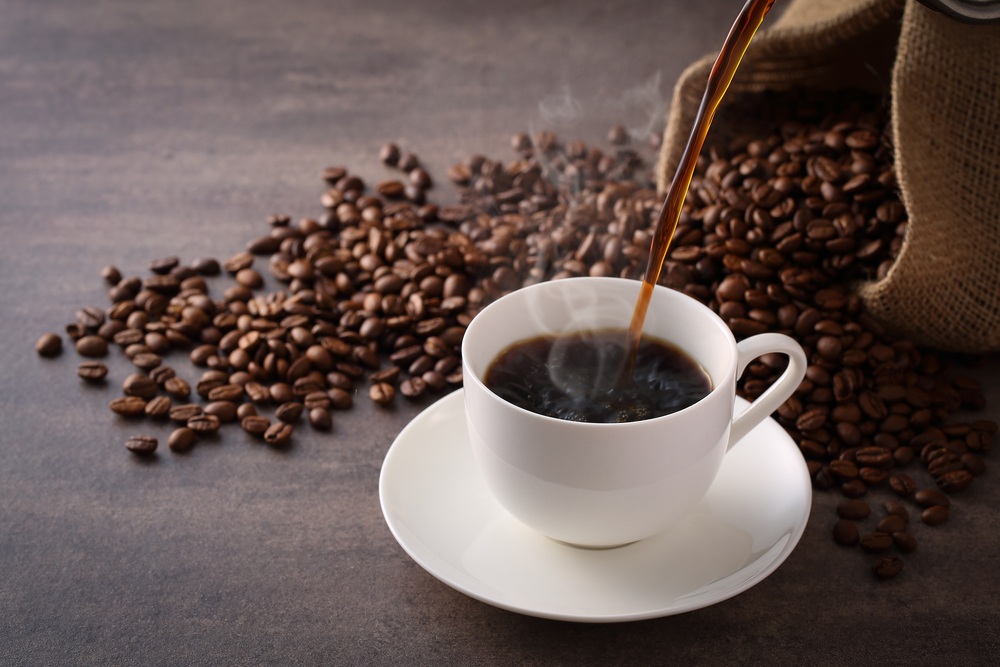
Do you love the taste of a freshly brewed cup of coffee? Ever wish you could brew it perfectly every single time? Well, now you can! With these five tips for brewing the perfect cup of coffee, you can become an expert barista in no time. It’s easier than you think to make a delicious cup of joe that’ll have your friends and family begging for more. So what are you waiting for? Let’s get into the details and learn how to make that perfect cup!
The first step in making the perfect cup of coffee is choosing quality ingredients. High-quality beans and filtered water are essential to making great-tasting coffee. Spend some time researching different types of beans and finding ones with flavors that appeal to your taste buds. With quality ingredients, you’re sure to start off on the right foot.
Next, find the right grind for your preferred brewing method. Different methods require different-sized grounds, so research which grind works best with your chosen brewing method. Whether it’s French press, pour-over, or drip coffee, having the appropriate grounds will help ensure a delicious flavor in each sip.
Now that everything is set up and ready to go, it’s time to brew! Follow these five steps for brewing the perfect cup of coffee, and soon enough you’ll be an expert barista in no time.
Equipment Needed
Brewing a perfect cup of coffee requires the right equipment. A full-bodied, flavorful cup starts with a fresh, quality roast. Quality grinders are necessary to get the grind size just right for your particular brewing method. The best brews start with freshly ground beans and proper water temperature.
Next comes the brewer itself. Choose a coffeemaker that fits your needs and will ensure the proper temperature and speed of brewing. Depending on the type of coffee you’re making, you may need an espresso machine or French press. If you’re using pre-ground beans, make sure to check the expiration date before using them.
Finally, choose good water for your brew—water that has been filtered or distilled is ideal as it removes many compounds found in tap water that can affect flavor and color. With all these components in place, you’ll be able to make a great cup of coffee every time!
Selecting Coffee Beans
When it comes to brewing a great cup of coffee, selecting the right beans is essential. There are many factors that go into finding the perfect bean, including roast level and origin.
Firstly, consider the roast level of your beans. You can choose from light, medium, or dark roasts. Light roasts have a higher acidity and bright flavor notes while dark roasts have a more intense body and smoky flavor. Medium roasts are often considered the best balance between these two extremes as they provide an even balance of both characteristics.
Next, think about where your coffee beans come from. Different origins will also produce different flavors that can range from fruity and floral to earthy and nutty. Some regions are known for producing particular flavor profiles such as Colombian for its chocolate notes or Ethiopian for its berry-like sweetness.
No matter what type you prefer, make sure to select high-quality coffee beans that have been freshly roasted. This will help ensure you get the most out of your brew and create an enjoyable cup of coffee every time!
Grinding The Beans
Grinding the beans is an important step in making a great cup of coffee. It’s best to purchase whole beans and grind them just prior to brewing. This ensures that the beans retain their flavor and aroma. The size of the grind should be determined by the method of brewing. For example, a course grind is recommended for French presses while a finer grind is typically used for pour-over brewers. It’s also important to use a consistent grind size to ensure even extraction when brewing. If the particles are too large, water won’t be able to penetrate through the particles and extract all of the flavors in your coffee grounds. If they’re too small, you’ll end up with over-extracted or bitter tasting coffee. With proper grinding techniques, you can be sure that your cup of coffee will always have maximum flavor and aroma!
Preparing The Water
Now that your beans are freshly ground, it’s time to get the water ready. The type of water used can drastically alter the flavor of your coffee. It is recommended to use filtered or bottled water over tap water for the best cup. If you use tap water, ensure it is fresh and not old-tasting.
When it comes to temperature, boiling is too hot and will burn the grounds. Letting cool down slightly allows for a more even extraction of flavor and a smoother cup. The ideal temperature range is 195-205 degrees Fahrenheit. If you don’t have a thermometer handy, let the water come off of a rolling boil and rest for 30 seconds before pouring over the grounds in your French press or pour-over.
Once you have reached your desired temperature, it’s time to start brewing! Measure out your coffee grounds into whatever device you’re using, whether it be an espresso machine, French press or pour-over cone – then pour in the hot water from top to bottom slowly and evenly until all of the grounds are saturated with liquid. You should now be well on your way to enjoying that perfect cup of coffee!
Brewing The Coffee
Brewing the perfect cup of coffee requires some skill and knowledge. First, you need to use the right grind size for your brewing method. Coarsely ground coffee is best for French press and percolators, while medium-fine grounds are best for pour-over brewers and espresso machines. Secondly, it’s important to measure out the right amount of grounds. Too much and your coffee will be too strong, while too little can make it too weak. Lastly, pay attention to the water temperature. The optimal temperature for brewing is between 195-205 degrees Fahrenheit, as anything above or below can produce undesirable results. Use a thermometer or buy a specialty brewer with temperature control capabilities to ensure you reach this range. With all these elements taken into consideration, you should be able to make the perfect cup of coffee every time.
Pouring & Serving
Pouring the coffee is just as important as brewing it. When pouring the coffee, make sure not to overfill the cup. This can cause spills and messes and will also dilute your coffee. When pouring from a carafe, tilt the carafe at an angle and pour slowly. If you’re using a French press, plunge the filter down and then pour.
When serving, it’s important to consider how you want to take your coffee. Adding cream or sugar can enhance the flavor of a bolder roast, while lighter roasts may be fine on their own. Milk or cream can also be added for those who prefer a milder cup of coffee.
No matter what type of coffee you are drinking, be sure to enjoy it at its finest by allowing it to cool slightly before consuming it; hot coffee can sometimes overwhelm your taste buds and hide subtle flavors that need time to develop.
Enjoying Your Coffee
Now that you’ve brewed the perfect cup of coffee, it’s time to enjoy it! Start by taking in the smell of your freshly-brewed coffee. Let its aroma awaken your senses and set a pleasant mood for the day.
Take a few moments to appreciate the flavor of your coffee, savoring each sip and noticing all the subtleties and nuances in taste. A good coffee should have a full body with hints of sweetness, acidity, bitterness, and nuttiness.
Finally, sit back, relax and enjoy your coffee. After all, part of what makes drinking coffee so enjoyable is savoring it in peace and quiet. There’s no need to rush; take your time to really appreciate this moment and relish every sip.
Conclusion
The perfect cup of coffee is a matter of personal preference. You may have to experiment with different beans, grinds and brewing methods to find the one that works best for you. You can easily make great-tasting coffee at home with the right equipment and knowledge.
Once you’ve found your ideal combination, it’s time to enjoy your handcrafted beverage. Start by taking a few moments to savive the aroma as you pour it into your favorite mug or cup. As you take your first sip, pay attention to the flavor and texture of the coffee on your palate.
Making great coffee is an art form and a science that takes practice and patience, but it’s worth it in the end. Once you master the basics, you’ll be able to create delicious drinks that will make you proud of your barista skills. So go ahead and start brewing – happy sipping!










